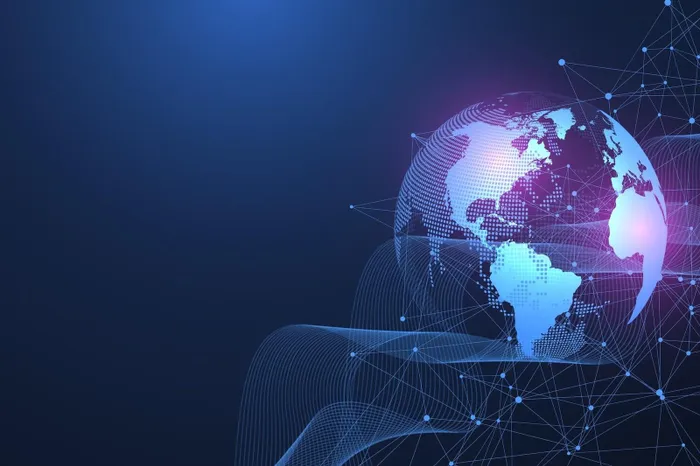Google’s AI Ambitions in Africa: Unlocking new potential

Image: TVBRICS
Africa's burgeoning youth population, projected to exceed 830 million by 2050, presents a unique opportunity. As artificial intelligence (AI) continues to transform economies and societies worldwide, the critical question for Africa is not its engagement with AI, but rather how it can leverage AI to foster local innovation and ensure inclusivity. Google's recent announcements regarding its AI initiatives in Africa underscore both the potential and the challenges inherent in this evolving landscape.
A Personal Encounter with AI
During his student days in Zimbabwe, a senior Google leader encountered neural networks for the first time. Reflecting on this, he articulated the core of Africa's AI challenge: effective AI access goes beyond products and connectivity; it requires equipping individuals with the necessary training and tools. This statement encapsulates Africa's AI dilemma.
From Cables to Connectivity: Google’s Infrastructure Legacy
Google has long recognised Africa's potential in the digital realm, dating back to its 2006 investment in the Seacom cable, which underscored the continent's reliance on connectivity for economic growth. The company has since invested over $1 billion in digital infrastructure, notably the Equiano subsea cable along Africa's western coast. Initial assessments in Nigeria indicate that Equiano is already lowering internet costs and increasing speeds, with projections of billions of dollars in GDP contributions in the coming years.
Google is enhancing Africa's digital infrastructure with four new subsea cable hubs, bolstering both regional and international connectivity. These additions work in tandem with the Umoja cable, which directly links Africa to Australia, and the Google Cloud region located in Johannesburg. This strategic development promises not only faster internet but also a robust ecosystem capable of supporting e-commerce, fintech, and AI-powered services. Just as digital infrastructure enabled the success of mobile money platforms like M-Pesa in Kenya, which now form the backbone of entire financial systems, this improved connectivity could also facilitate the deployment of AI tools for applications such as healthcare diagnostics, smart agriculture, and disaster prediction.
Education and Training: Tools in Students’ Hands
Central to Google's vision for Africa is education. The company has announced that university students in Egypt, Ghana, Kenya, Morocco, Nigeria, Rwanda, South Africa, and Zimbabwe will receive free one-year subscriptions to Gemini AI Pro. These tools have the potential to empower a Kenyan engineering student to develop machine-learning models or a Nigerian medical student to simulate diagnoses for training purposes.
Training is crucial in addition to providing tools. Google has already equipped 7 million Africans with digital and AI skills, aiming to reach 10 million by 2030. The company has invested over $17 million in African universities and research institutions, with an additional $9 million recently committed. For example, South African universities are exploring AI-assisted learning, and Rwandan students are utilizing AI-powered translation tools for Kinyarwanda research. These instances demonstrate that AI is being adapted to local contexts rather than merely imported.
Language and Knowledge Inclusion
Google's most overlooked contribution lies in language inclusion. Africa, with over 2,000 languages, faces the risk of AI exclusion if its linguistic diversity is ignored. However, Google is expanding access to knowledge by incorporating more than 30 African languages into Google Translate and developing datasets for over 50.
Beyond mere convenience, language plays a crucial role. For example, a Tanzanian farmer who speaks only Kiswahili might be unable to access global crop resilience data without translation. Similarly, providing health information in languages like Hausa or isiZulu ensures that the advantages of AI are accessible to everyday citizens, not just a select urban elite.
Local Innovation Meets Global Investment
Google's AI research centers in Ghana and Kenya are actively developing tangible solutions. These include AI-powered systems for flood prediction in West Africa, mapping tools crucial for disaster response, and agricultural advancements that enhance planting and irrigation techniques. These initiatives represent more than just experimental projects; they are life-saving technologies with practical applications.
Africa is not just a passive recipient; local initiatives like Zipline's drone delivery of medical supplies in Rwanda and Data Science Nigeria’s AI training hubs demonstrate African innovators are already influencing the technological landscape. The crucial question is whether Google's investments will enhance these existing efforts or eclipse them.
Seizing the Opportunity on Africa’s Terms
Google portrays its endeavors as a lasting dedication to Africa's populace, enterprises, and societies. Its track record, encompassing projects from subsea cables to AI training, indeed demonstrates authentic contributions. However, Africa's burgeoning youth demographic, its rich linguistic variety, and its vibrant innovation culture unequivocally show that the future cannot be dictated solely by Silicon Valley.
AI offers Africa vast opportunities to transform agriculture, health, education, and governance. However, it's crucial for African nations, academic institutions, and businesses to actively direct this transformation. Failing to do so could lead to a new digital divide, benefiting a select few while excluding millions.
Ultimately, Google presents a vision of possibility. The crucial question is whether Africa will seize this opportunity, ensuring AI serves as a catalyst for inclusive growth, cultural preservation, and global competitiveness, rather than fostering dependency.
*Sesona Mdlokovana
Associate at BRICS+ Consulting Group
African Specialist
** MORE ARTICLES ON OUR WEBSITE https://bricscg.com/
** Follow https://x.com/brics_daily on X/Twitter for daily BRICS+ updates
Related Topics: